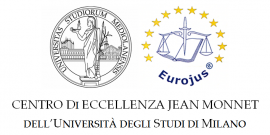Il sistema di selezione dei membri della Corte di giustizia dell’Unione europea fra valutazioni di merito e problemi di trasparenza
Prima dell’entrata in vigore del Trattato di Lisbona, gli Stati membri avevano un potere esclusivo ed insindacabile nella nomina dei membri della Corte di giustizia dell’Unione europea. A Lisbona, per la prima volta, si è deciso di ridimensionare tale potere, istituendo un Advisory Panel incaricato di fornire un parere sull’adeguatezza dei candidati all’esercizio delle funzioni di giudice e di avvocato generale della Corte di giustizia e del Tribunale, prima che i governi degli Stati membri procedano alle nomine.
Nel presente lavoro l’autore si propone, per l’appunto, di esaminare i meccanismi di judicial appointment nell’Unione europea, soprattutto alla luce delle attività svolte dal Panel istituito ai sensi dell’art. 255 TFUE. L’obiettivo è quello di valutare se e come tale organismo abbia contribuito a rendere più efficace e trasparente il sistema di nomina dei membri dell’Istituzione giudiziaria dell’Unione e, quindi, a rafforzare la loro indipendenza ed imparzialità, oltre che la loro legittimità.
A tal fine, nella prima parte vengono prese in esame le principali questioni giuridiche in materia di selezione dei giudici internazionali. Successivamente, ci si soffermerà in maniera più approfondita sull’ordinamento dell’Unione europea e, nello, specifico sul ruolo svolto dal Panel 255, prestando particolare attenzione alla trasparenza del meccanismo di valutazione dei candidati. Alla luce dell’analisi svolta, quindi, l’autore svolge alcune osservazioni critiche sul sistema di judicial appointment nell’Unione europea e avanza alcune proposte su come rendere la procedura più trasparente ed aperta.
The appointment of Judges and Advocates General to the Court of justice of the European Union: assessments of merits and transparency issues
The appointment of Judges and Advocate-General to the Court of justice of the European Union has long been exclusively in the hands of member States. Hence, the purpose of the Lisbon Treaty, among other things, was to reduce their discretionary power, introducing a mechanism to scrutinize candidates. Art. 255 TFEU, thus, established an advisory Panel whose mission is give an opinion on candidates’ suitability to perform the duties of Judge and Advocate General of the Court of Justice and the General Court before the governments of the Member States make the appointments referred to in Articles 253 and 254 of that Treaty.
This paper analyzes the process of judicial appointment in the European Union in the light of the innovation introduced by the Lisbon Treaty. The aim is to assess if the Panel 255 has made the appointment of Judges and Advocates General more transparent and if it has strengthened their independence and impartiality.
The author starts from a general analysis on the appointment of international Judges and then focuses on the case of the European Union, so to outline also the differences with the other international tribunals, such as the European Court on Human Rights. With regard to the European Union, the paper underlines, in particular, the Panel’s the lack of transparency and then gives some suggestion on how to reform the process of judicial appointment with the aim to make it more transparent and open.


